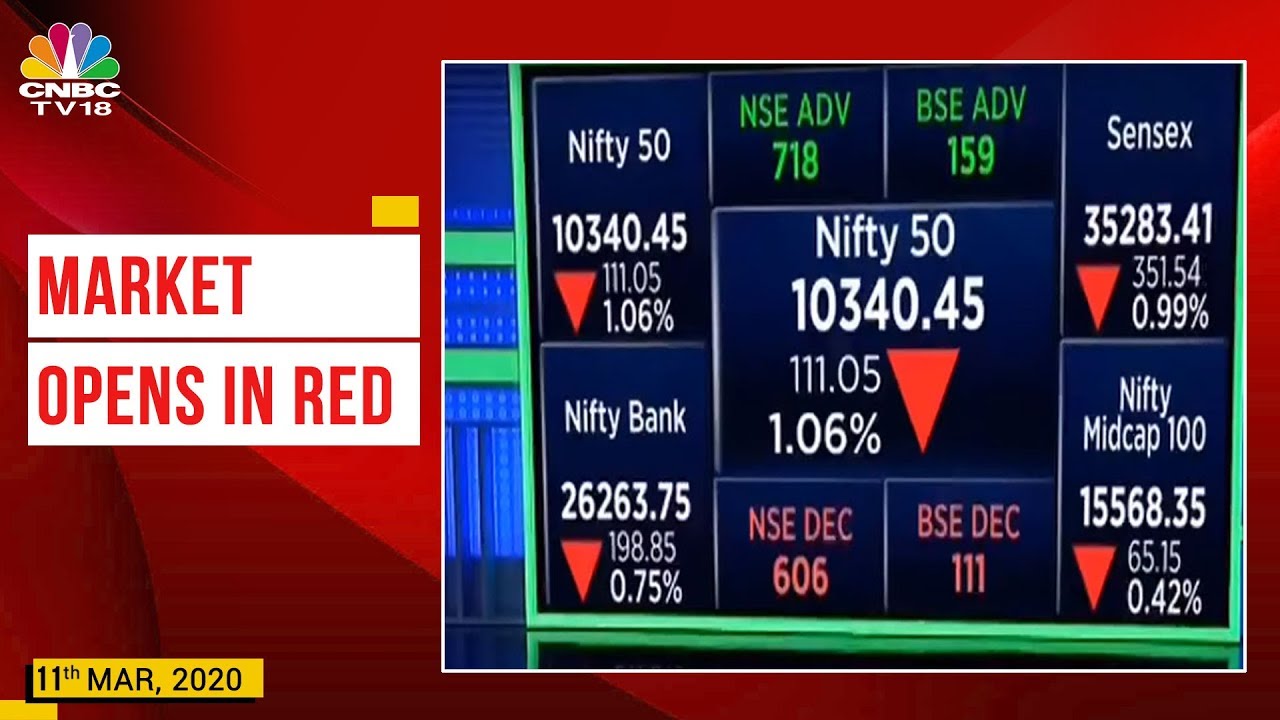


The Stock Market opened on a negative note today, with Sensex declining by 591.21 points and Nifty by 183.55 points in early morning trading session. Experts attribute this dip to the ongoing tension in the Middle East after Israel's attack on Iran, which is expected to increase oil prices and inflation worldwide. In the pre-open market, BSE Sensex traded at 71,999.65 while Nifty50 traded at 21,861.50. In the midst of this, ONGC, Apollo Hospital, Cipla, ITC, and Dr. Reddy were the top gainers while BPCL, HDFC Life, Bajaj Auto, Infosys, and Coal India were the top losers. Investors are advised to carefully consider all factors before making any investment decisions.
Rising Middle East Tensions and Their Impact on Global Markets
Background
Iran and Israel have long been at odds, with tensions flaring up periodically over various issues. In recent weeks, the conflict escalated after Israel launched an attack on an Iranian nuclear facility. This has raised concerns about the potential for a wider regional conflict and its impact on global energy markets.
Impact on Oil Prices
The Middle East is a major oil-producing region, and any disruption to supply can have significant consequences for oil prices. Following the Israeli attack on Iran, oil prices surged due to concerns over potential supply disruptions. This has led to fears of increased inflation worldwide, as higher energy costs can trickle down to consumer prices.
Stock Market Impact
The ongoing tensions in the Middle East have also impacted global stock markets. Investors are wary of investing in companies that may be affected by the conflict, such as those in the energy or financial sectors. As a result, stock markets around the world have experienced volatility and declines.
Top 5 FAQs
1. What is the history of the conflict between Iran and Israel?
The conflict between Iran and Israel dates back to the 1979 Iranian Revolution, when Iran became an Islamic republic. Since then, the two countries have been at odds over various issues, including Israel's support for the Palestinian cause and Iran's nuclear program.
2. Why did Israel attack Iran's nuclear facility?
Israel claims that Iran's nuclear program is a threat to its security, as Iran could potentially develop nuclear weapons. The facility that was attacked was suspected of being used to produce nuclear material for weapons development.
3. What is the potential for a wider regional conflict?
The attack on Iran's nuclear facility has raised concerns about the potential for a wider regional conflict. Iran has vowed to retaliate, and there is speculation that it could target U.S. or Israeli interests in the region.
4. How are global markets responding to the tensions?
Global markets are responding negatively to the tensions in the Middle East. Oil prices have surged, and stock markets have experienced volatility and declines. Investors are wary of investing in companies that may be affected by the conflict.
5. What are the long-term implications of the rising tensions?
The long-term implications of the rising tensions in the Middle East are uncertain. If the conflict escalates, it could have a significant impact on global energy markets and the global economy. Additionally, it could further destabilize the Middle East region, leading to increased humanitarian crises and security concerns.

Branded mithai sales are expected to rise by 15-20% during this Diwali season in India, due to a surge in corporate gifting, retail demand, and product innovation. The packaged sweets market in India is projected to reach 27,600 by 2033, with a 16% annual growth rate, as per IMARC Group. With a growing taste for luxury and customization in gifting, Indian brands are expanding rapidly and introducing new products, such as millet-based and vegan options, to cater to changing consumer preferences.

Shoppers Stop, India's leading retail destination, hosted a star-studded event to launch their exclusive Diwali Collection in Pune. With famous actress Tejasswi Prakash gracing the event, the store was transformed into a festive paradise with vibrant displays and a plethora of premium brands and gifting options. Speaking about the collection, Shoppers Stop's CEO Kavindra Mishra emphasized their commitment to providing the best shopping experience for customers. Fans had the opportunity to meet Tejasswi and explore the collection, making the launch a truly memorable Diwali celebration for everyone.

Muthoot Finance, India's largest gold loan NBFC, is launching the third season of its Sunheri Soch campaign, which aims to break myths surrounding gold loans and highlight the stories of its customers' success. With Madhuri Dixit as the narrator and supported by regional voices and 64 radio stations, the campaign showcases how gold loans can be an engine of opportunity and financial independence. The Sunheri Soch movement will also have a digital platform, sunherisoch.com, where customers can engage and share their own inspiring stories.

The Indian Airport Economic Regulatory Authority has extended the deadline for stakeholders to submit feedback on proposed airport performance standards until October 20. The authority aims to create a balanced mechanism that rewards airport service excellence while holding them accountable for lapses. This performance-linked framework will potentially affect tariff structures and service agreements across major airports in India, aligning with global best practices.

In this email, a reader expresses their frustration with the decline of dressing well in public settings. However, the writer also points out the undeniable advantages that come with dressing in a more formal and put-together manner, including better treatment from others and an increase in self-confidence. While many may argue that they have the right to dress as they please, societal norms and expectations still exist and can affect how one is perceived and treated. This highlights the power of appearance in various aspects of life, including business and success.

The Dhanteras festival proved to be a boon for Indian traders as consumers defied surging gold prices and spent an estimated Rs 1 lakh crore on the auspicious day. The Confederation of All India Traders (CAIT) reported a 25% increase in gold and silver sales, making up a significant portion of the total expenditure. Despite the economic slowdown, the tradition of purchasing gold and other items symbolising prosperity on Dhanteras remains strong, highlighting the cultural significance of the festival.

Union Railway Minister Ashwini Vaishnav, at the International Railway Equipment Exhibition (IREE), highlighted India's remarkable progress in railway modernisation, stating that under the leadership of Prime Minister Narendra Modi, the country has witnessed the construction of 35,000 kilometres of new railway tracks and electrification of 46,000 kilometres of tracks in the past 11 years. He praised the Confederation of Indian Industry (CII) for organising the IREE and urged them to think bigger and envision a global-scale railway exhibition that surpasses Germany's InnoTrans, showcasing India's growing capabilities in railway infrastructure and technology.

On Friday, the IRCTC website and mobile app faced technical issues, causing an outage and inconvenience to over 5,800 users trying to book tickets. Social media platforms were flooded with complaints as the server crashed during peak booking hours, with some suggesting the need for better technology to handle festive rush. Officials have assured that efforts are being made to restore normal operations.

In a boost for the festive season, Indian Railways has launched two special Vande Bharat trains between Delhi and Patna. These trains will run till November 17 and offer a luxurious and secure travel experience for passengers during Diwali and Chhath Puja. With stops at six important stations, these trains will cover a distance of 1,000 km in under 14 hours.

As India prepares for Dhanteras 2025, gold has already become the star of the show, with prices surging more than 50% this year and showing no signs of slowing. The combination of global and domestic factors, including safe-haven demand, central bank buying, and economic uncertainty, has pushed gold to an all-time high of over Rs 1,30,000 per 10 grams. As investors flock to add the precious metal to their portfolio, experts predict a continued upward trend, driven by lower interest rates, de-dollarisation, and geopolitical tensions.